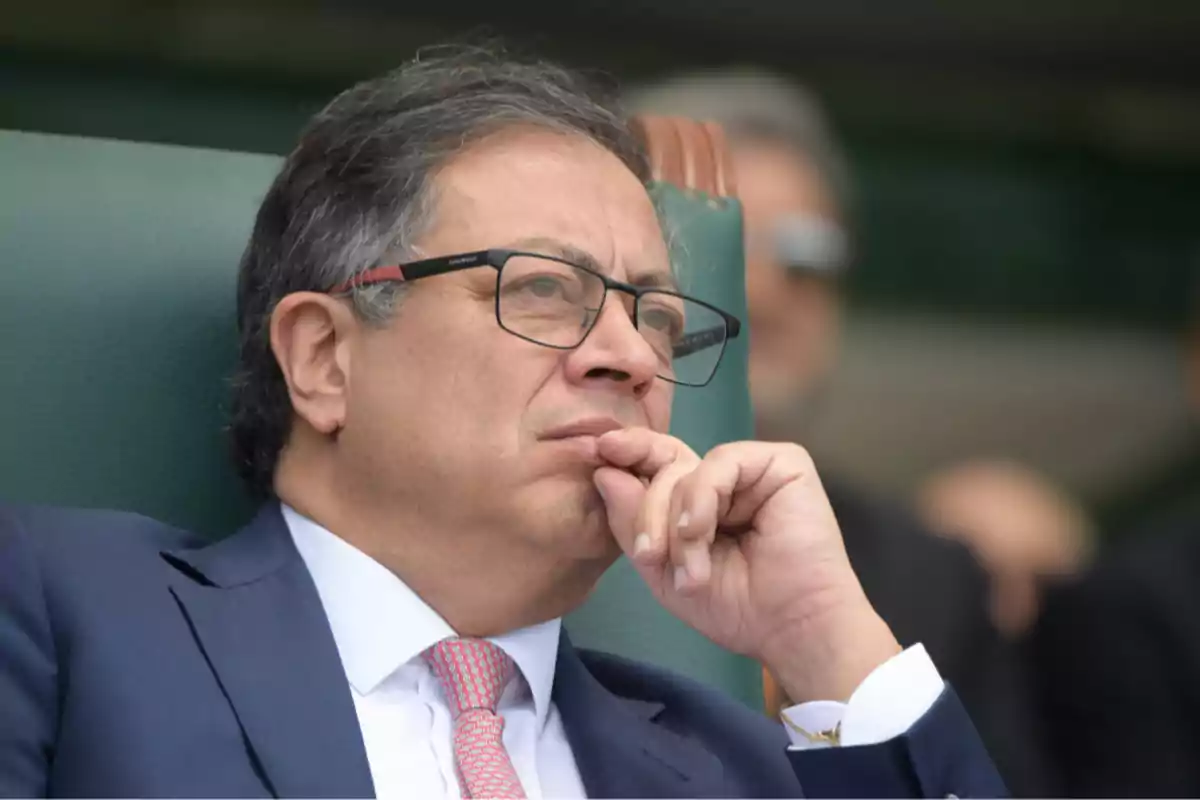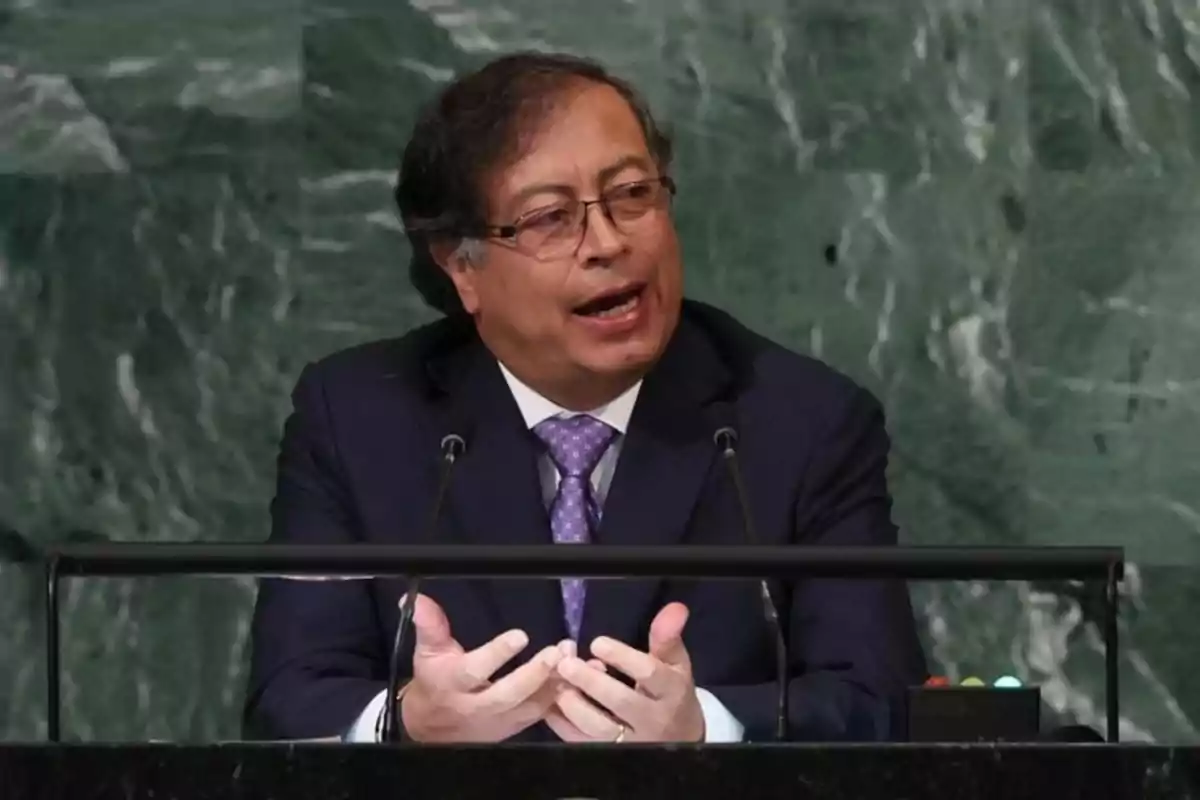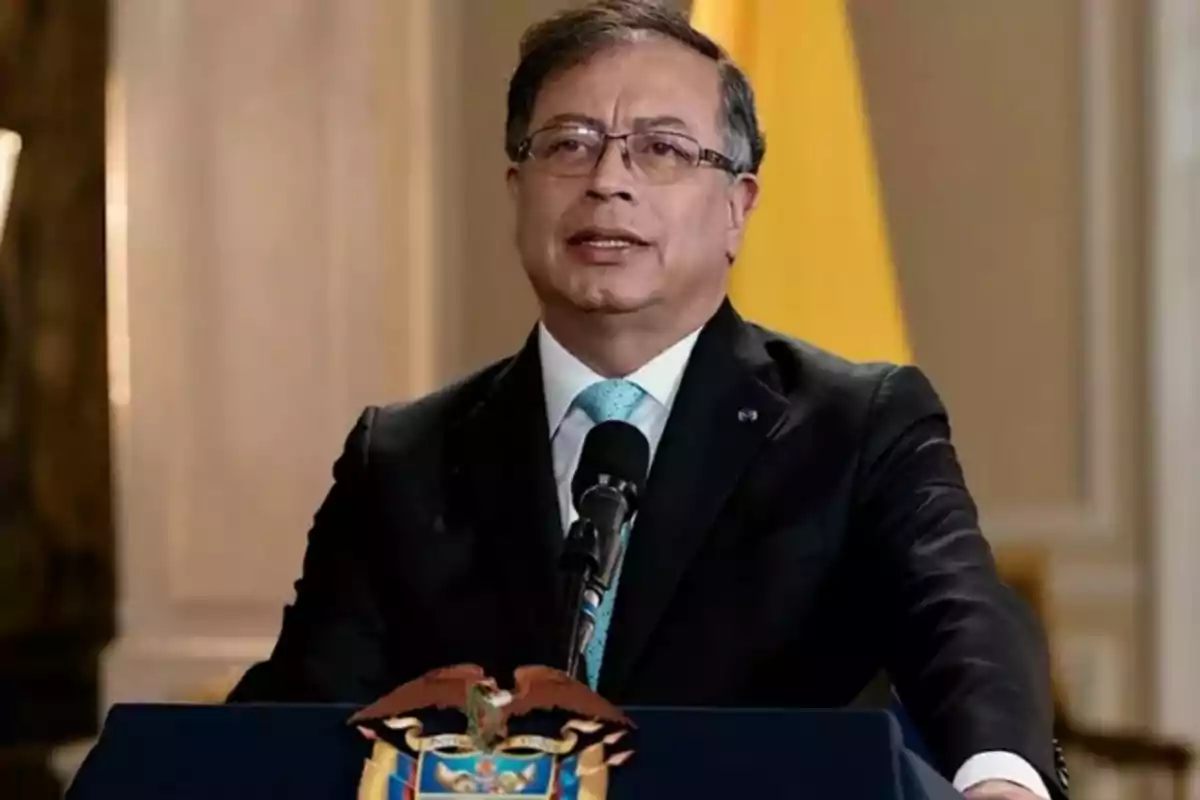
Socialist President Petro tries to interfere in Ecuador's internal affairs
The political asylum offer made by Colombia to Ecuadorian opposition members sparked new diplomatic tension
The president of Colombia, Gustavo Petro, once again stirred controversy by offering asylum to Ecuadorian political figures allegedly persecuted. The measure, based on a supposed 'blacklist' without official verification, was seen as a clear interference in Ecuador's internal affairs.
Petro justified his decision after the April 14 incident, when former vice-presidential candidate Diego Borja was prevented from crossing into Colombia. The Colombian leader, of socialist tendency, took advantage of the case to reinforce his discourse of political persecution without providing concrete evidence.
The supposed 'blacklist' was initially published by former president Rafael Correa, now exiled in Belgium, and replicated on social media. Petro not only supported this unverified version but also used his platform to amplify a narrative promoted by Correa's sectors.
Among the names are figures like Luisa González, Alexis Mera, and the mayor of Guayaquil, Aquiles Alvarez, among others. The Ministry of the Interior of Ecuador has not confirmed the existence of such a list, which casts doubt on the persecution narrative that Petro tries to maintain.

In Borja's specific case, Ecuadorian authorities indicated that he was asked to identify himself and that he voluntarily left the place. The official version dismantles the claim that it was an arbitrary detention, showing that the narrative has been distorted for political purposes.
Petro also mentioned "concerning" reports about the presidential elections on April 13, but did not specify sources or evidence. These statements, without verifiable support, reinforce the perception that the Colombian leader seeks to generate instability in a neighboring country through ideological discourses.
Human rights organizations have called for an investigation into the events, but avoid making judgments without clear evidence. In contrast, Petro moved forward with an 'open doors' policy that reflects more of an ideological affinity than a real commitment to human rights.
So far, the Colombian government has not explained how asylum requests will be processed or under what criteria. This suggests a calculated political move, aiming to strengthen networks of support for regional socialism, even at the expense of bilateral relations.

Petro's attitude has been criticized by analysts who point out that a head of state should not intervene in the internal processes of another nation. His position, far from promoting stability, could exacerbate polarization and weaken border cooperation with Ecuador.
Gustavo Petro's intervention in Ecuadorian politics reflects an ideologized and opportunistic stance. His eagerness to support regional socialism, even through narratives without evidence, reveals intentions more political than supportive.
More posts: